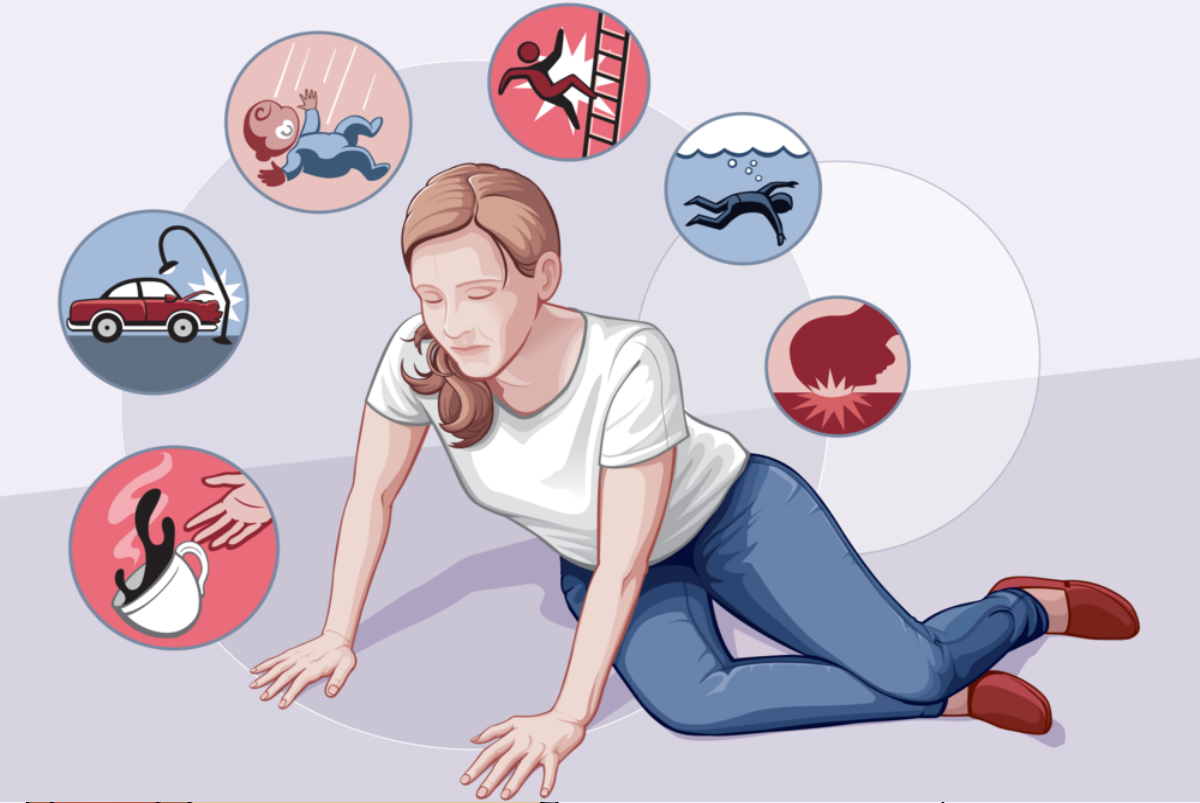Why epilepsy? What are the Causes of Epilepsy?
Understanding epilepsy
Over 50 million people in India are affected by epilepsy. It is a neurological condition that affects a person's brain and causes repeated seizures. These seizures can take many forms, including a loss of consciousness; some people may have convulsions (muscles contract repeatedly) and uncontrolled motions.
- Prevalence in India: Epilepsy affects around 50 million (5 crore) people in India, and it affects their lives and families badly.
- Neurological Basis: Epilepsy is a neurological condition caused by abnormal electrical discharges in the brain. Genetics, brain traumas, infections, and anatomical anomalies are all potential causes of these disturbances.
Different Seizure Types
Seizures in epilepsy can take several forms. People will start losing consciousness; some people have severe seizures. The various types of attacks demonstrate the disorder's complications.
- Impact on daily life: The unexpected seizures of epilepsy are impacting one's everyday life. A person affected by epilepsy would have difficulties performing their daily tasks like job roles, schooling and studies, and social relationships. This will result in judgment and confusion regarding their disease.
- Treatment Options: Fortunately, epilepsy is a manageable disorder. There are medicines available for preventing the seizures of epilepsy. However, it should be taken after being prescribed by the healthcare expert for the betterment of the individual.
- Holistic approach: A holistic approach to controlling epilepsy includes several natural therapies; some of them are dietary adjustments, vitamins, herbs, stress-relieving techniques, acupuncture, biofeedback, vagus nerve stimulation, chiropractic care, cannabis, and other therapies, and others are surgical procedures.
- Educational initiatives: The biggest step to cutting out the stereotypes about epilepsy is education. Understanding that epilepsy is a medical condition rather than an indication of mental illness or possession promotes supportive communities. It will automatically reduce the impact of social stigma.
- Support Networks: They are establishing a support system for the people who are affected by epilepsy and taking care of their families with a settled support network. Support groups, therapy, and information access all help create a more knowledgeable and compassionate community for the needy.
Note: If a person shows symptoms of epilepsy, then his treatment should be started without delay.
Symptoms of Epilepsy
Epilepsy, revealed through a range of symptoms, may vary in its intensity and presentation. Understanding these signs at an early stage is crucial and helpful for appropriate management.
- Irritability in Nature: Individuals with epilepsy may exhibit irritability, resulting from neurological disorders that disrupt mood control. Recognising changes in behaviour is vital for early intervention.
- Feeling Tired and Stressed: A constant reduction in body energy and stress can be indicative of epilepsy. Seizures and the working activities related to our nervous system may contribute to physical and mental exhaustion.
- Weakness in the Body: It was very common to feel weak after having seizures. It may take time for the body to recover, and individuals may experience temporary weakness or fatigue.
- Muscle Cramps: Seizures involve muscle contractions, which lead to cramps in the body and pain for the person. These cramps can vary in intensity and duration, impacting different muscle groups.
- Trouble Hearing and Tasting: Seizures in epilepsy are very effective for sensory perception. Individuals may experience disturbances in hearing and taste during or after a seizure episode.
- Sudden Dizziness and Falling to the Ground: Sudden bouts of dizziness or loss of consciousness leading to falling are major symptoms of certain types of seizures, particularly tonic-clonic seizures.
- Upturned Eyes: Sometimes seizures may cause the eyes to roll upwards in an uncontrolled way. This sign can be seen during specific types of seizures.
- Repeated Actions: Doing some repetitive and senseless activities, like clapping or rubbing hands, can cause certain types of seizures.
- Cramping and Twitching: Muscle cramping and jerking of muscles are often considered symptoms of having seizures. These unconditional movements can be localized or generalized, depending on the type of seizure.
It's important to note that the symptoms of epilepsy can vary widely between individuals, and everyone will experience it in different ways and have signs. Additionally, some symptoms may be indefinite and easily overlooked. If there are concerns about epilepsy or if any of these symptoms are observed, an individual needs to consult with a healthcare professional in the very first step. This is essential for an absolute evaluation and appropriate management. Early diagnosis and custom treatment plans seriously contribute to improving the quality of life for individuals with epilepsy.
Understanding the Complex Causes of Epilepsy
Epilepsy is a neurological disorder that can be caused by many different types of reasons. Every significant aspect altered the landscape of this condition. Understanding the root cause of epilepsy would be crucial.
- Complete Absence of Oxygen at Birth: In a few circumstances, the complex movement of life's beginnings might be disturbed, resulting in a lack of oxygen during delivery. This lack of oxygen, known as birth hypoxia, can affect brain development and lead to epilepsy later in life.
- Brain Tumor, Stroke, and Genetic Conditions: The complicated structure of the brain makes it susceptible to various challenges. Conditions such as brain tumours, strokes, and certain genetic factors can alter the delicate balance of neural activity, paving the way for epileptic seizures.
- Sleep Deprivation and Physical Overexertion: The body's balance is positively linked to proper rest and physical well-being. Lacking sleep and pushing yourself to physical limits beyond your capacity will result in a disturbance of life balance, probably triggering epileptic episodes.
- Substance Consumption - Alcohol, Tobacco, and Intoxicants: Living a healthy lifestyle would play a vital role in treating epilepsy. The consumption of alcohol, tobacco, or other intoxicants can induce chemical imbalances in the brain, acting as potential generators for epileptic seizures.
- Electric Shock Incidents: The human body has a sophisticated electrical network that can be troubled by external forces. Experiencing an electric shock in the body, whether it was due to any accidents or job-related hazards. It may contribute a big role to the development of epilepsy.
- Excessive Stress: The mind-body connection is undeniable, and stress, when pushed to extremes, can act as a potent trigger for epilepsy. The intricate interplay between mental health and neurological function underscores the importance of stress management in epilepsy prevention.
Understanding the multifaceted nature of epilepsy necessitates a nuanced approach to diagnosis and treatment. Each individual's journey with epilepsy is unique, and a comprehensive evaluation by healthcare professionals is vital for developing tailored strategies. By shedding light on these diverse contributors, we move towards a more empathetic understanding of epilepsy and a collective commitment to advancing research and support for those affected by this complex neurological condition.

